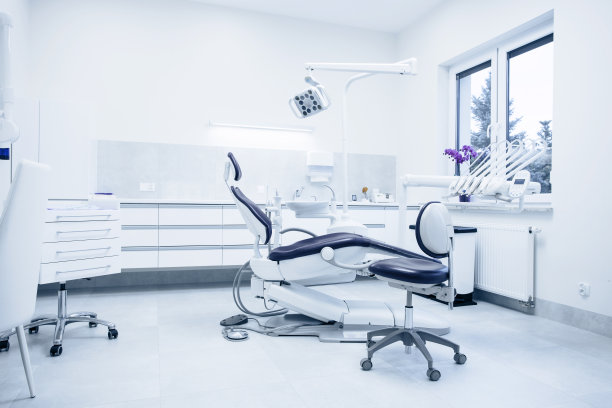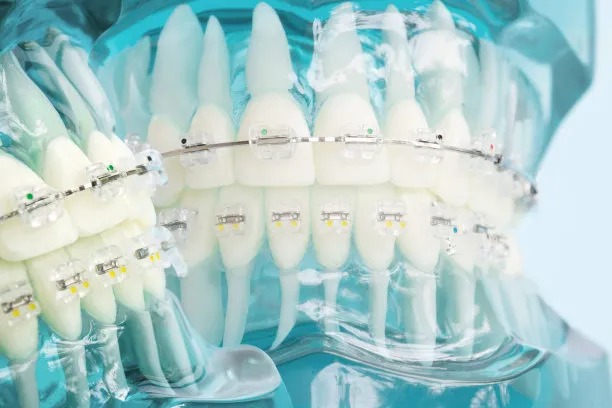Summary: Dental fillings are essential for restoring cavities and ensuring oral health. However, the success of the procedure depends significantly on the preparations made beforehand and the care taken afterward. This article outlines important guidelines and precautions you should follow before and after getting a dental filling. By adhering to these recommendations, patients can enhance their comfort levels, ensure proper healing, and reduce the risk of complications. We will provide you with a comprehensive overview of what to expect and how to prepare for your dental filling appointment while also offering suggestions for post-procedure care.
1. Understanding the Dental Filling Procedure

Before diving into the preparations and precautions necessary for a dental filling, its crucial to understand what the procedure entails. A dental filling is performed to treat tooth decay, where the dentist removes the decayed portion of the tooth and fills it with material such as composite resin, amalgam, or gold. Knowing this can help alleviate anxiety associated with the procedure.
Its also beneficial to inquire about the specific filling materials used. Each type of filling has its pros and cons, which can affect both the cost and longevity of your restoration. Discussing these options with your dentist can better prepare you for the appointment and ensure youre comfortable with your choice.
Lastly, understanding the potential sensations you might experience during the procedure can ease any apprehensions. Most dental fillings are completed under local anesthesia, minimizing discomfort. Familiarizing yourself with this information can help you feel more controlled and relaxed throughout the experience.
2. Guidelines to Follow Before the Appointment
Preparation before your dental filling appointment is paramount. First and foremost, arrive with a clear mind. Nurturing a positive attitude can significantly minimize anxiety. Consider practicing relaxation techniques such as deep breathing before your appointment or even engaging in mindfulness exercises.
Another vital guideline is to communicate openly with your dentist. If you have any allergies or medical conditions, make sure to inform them. This information is crucial for your dentist to select the appropriate anesthesia and materials. Your oral health history can impact your filling procedure, making communication key.
Lastly, consider scheduling your appointment at a time when you can take it easy afterward. Filling procedures often require a bit of recovery time, especially if anesthesia is involved. Plan for a relaxing day following your visit, which allows you to rest and avoid strenuous activities.
3. Care and Precautions After the Filling
The first few hours after your dental filling are critical for ensuring a smooth recovery. Avoid eating or drinking until the anesthesia has fully worn off. This precaution helps prevent accidental biting of the numb area, which can lead to further damage or discomfort.
Once you feel the sensation returning, be mindful of what you consume. Opt for soft foods and avoid overly hot or cold items for the first 24 hours. This gentle approach helps reduce the risk of sensitizing the recently filled tooth and ensures you don鈥檛 experience discomfort.
Additionally, maintain proper dental hygiene during your recovery. Even with a new filling, continue to brush and floss lightly around the area to keep it clean. If you experience any unusual symptoms, such as heightened sensitivity or swelling, make sure to contact your dentist for guidance.
4. Regular Check-ups and Maintenance
Maintaining regular dental check-ups is crucial to ensure the longevity of your filling. Schedule visits every six months to allow your dentist to monitor your dental health and the integrity of your filling. These appointments can help identify any issues early and address them before they develop into more significant problems.
In addition to professional care, your at-home oral hygiene plays an essential role. Brushing twice daily and flossing regularly can prolong the life of your filling and prevent new cavities from forming. Consider using a fluoride toothpaste to enhance enamel strength and fight decay.
Lastly, avoid habits that can damage your dental work, such as biting your nails or chewing on hard objects. These activities can lead to filling fractures or other complications. Staying vigilant about your dental routines and avoiding harm will contribute significantly to your overall oral health.
Summary:
In conclusion, preparing adequately for your dental filling appointment and following post-procedural care guidelines can enhance the overall success of the treatment. From understanding the procedure to maintaining regular check-ups, each aspect contributes to a healthier smile.
Implementing these essential guidelines ensures a smoother dental experience and long-term oral health." This article is compiled by Vickong Dental and the content is for reference only.
Vickong Dental
Vickong Dental is a large medical group established in Hong Kong in 2008 by professors from well-known medical universities in Guangdong and Hong Kong, as well as medical doctors from key national '985' universities (including Master's supervisors and senior professors). The chain of branches brings together expert dentists with PhDs and Master's degrees from Hong Kong and Mainland China, committed to providing high-quality dental treatment.
"Vickong Dental Practices the University Motto of 'Healing and Serving Society,' with a Stable Operation for Sixteen Years. It Has Been honored with Hong Kong Enterprise Leaders's Choice,' and is a Global Trusted Implant Center for the Nobel Implant System. Recommended by Hong Kong Metro Broadcast and Guangdong Television, it Serves Customers from Over Thirty Countries and Regions, Gaining the Trust and Favor of Citizens from the Guangdong-Hong Kong-Macau Greater Bay Area and Surrounding Cities.

Thousands of customers' unanimous praise
The most recognized and highly recommended dental service by customers in the Guangdong-Hong Kong-Macau Greater Bay Area
We Ensure You Receive Detailed Care and Attention Here
Hong Kong standards, Shenzhen prices, Your Trusted English-speaking dentists

Vickong Dental Medical-Grade Instrument Disinfection Process
Vickong Dental Medical-Grade Instrument Disinfection Process

Vickong Dental Chain: A Warm and Comfortable Environment for Treatment






Appointment Hours

Q&A
Why choose Vickong Dental?
Vickong Dental practices the university motto 「Medicine to Benefit Society」, with each branch bringing together highly qualified dentists with doctoral and master’s degrees from Hong Kong and the Mainland, and has maintained seventeen years of steady operation。Recipient of 「2024 Hong Kong Enterprise Leaders Brand」, 「2025 Hong Kong Enterprise Leaders Brand」, a Nobel Biocare Global Trusted Implant Center, and a brand recommended by Metro Radio Hong Kong and Guangdong TV。
To date, we have served customers from more than thirty countries and regions,earning exceptionally high word-of-mouth recognition and trusted recommendations from residents across the Guangdong-Hong Kong-Macao Greater Bay Area and surrounding cities
We have eight major branches in Zhuhai、Shenzhen,and a consultation and service assurance center in Hong Kong,so you can book a free consultation at any time for any questions,which is very reassuring.
If I do not accept the quotation after the CT scan, will I be charged??
No! As long as the actual treatment has not started, you will not be charged any fees.
Will there be any additional charges during the treatment process?
No, there won’t be any additional charges. Before treatment begins, we will clearly explain the treatment plan and its corresponding fees. Only after the patient agrees and signs the consent form will we proceed with the dental service.
Can I pay in Hong Kong dollars?
Yes. Vickong Dental accepts payment in Hong Kong dollars. The amount will be converted based on the exchange rate of the day, and the applicable rate will be clearly communicated to you in advance.
Can I reschedule my appointment at any time?
Yes. Please contact us via **WeChat** or **WhatsApp** as early as possible, providing your original appointment time and details, along with your preferred new date and time slot for rescheduling.













